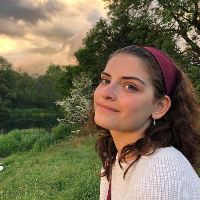Top 9 Alternative Classics To Read This Summer
As an English Literature student, I feel like I haven’t read as many books (or as many classics) as I should. The Imposter Syndrome often hits me hard. Summer is undoubtedly the best time to catch up on all your reading and I have been using this time to read a wide variety of books. I would like to share some of them with you.
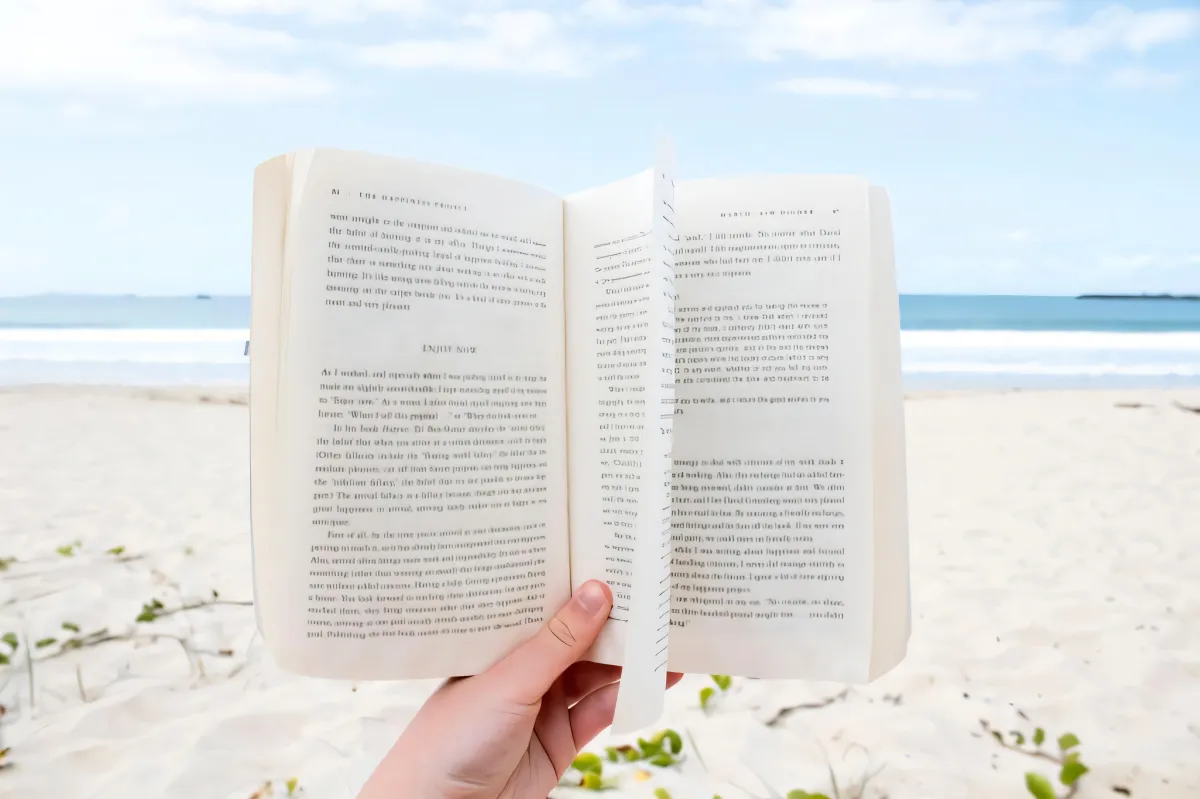
These books are known as modern literary classics. I consider them to be somewhat alternative to the usual Jane Eyre or Moby Dick because of their distinct styles and unusual plots, which makes them perfect for your summer reading list.
Here are the top ten alternative classics you should read this summer:
1. Rebecca by Daphne du Maurier
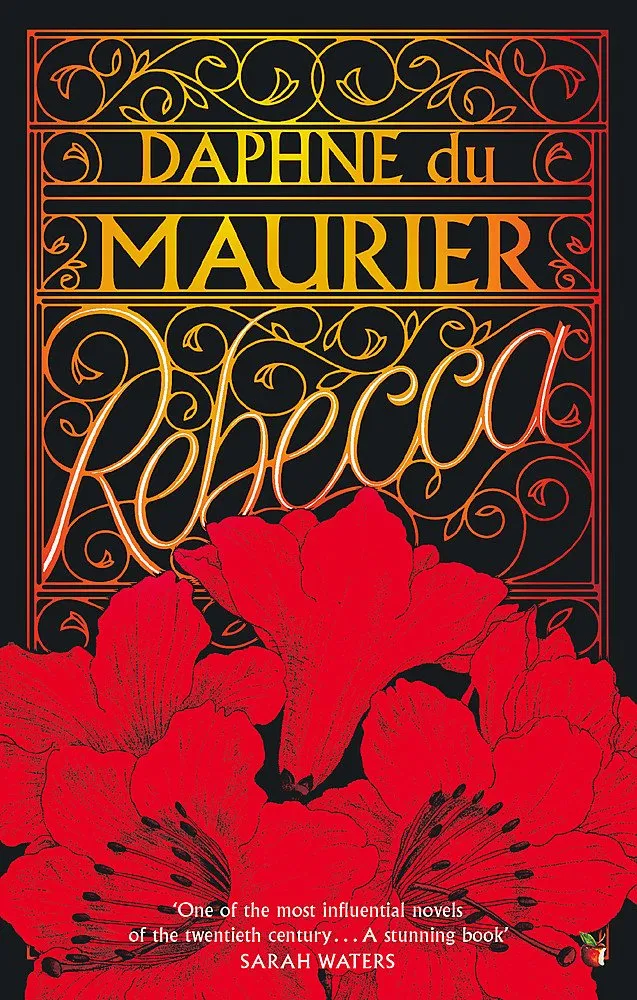
Rebecca by Daphne du Maurier has been simultaneously critically acclaimed and critiqued. First publishing in 1938, the story follows a young woman as she struggles to live up to the ghost of her husband’s deceased wife – Rebecca. This is a classic example of popular gothic romances.
Although the plot is a little bit dark, du Maurier’s humble writing allows the reading to flow very easily. Rebecca has, in fact, been criticized because of the simplicity of the language used and the banality of the plot, which is compared to Jane Eyre itself.
Admittedly the plot is quite modest and, perhaps to a modern reader, some of the main character’s motives can appear to be backward as well as frustrating. However, the book is never boring as it is full of plot twists and cliff-hangers which will always leave you wanting more.
Ironically, I think it is actually the unpretentiousness of du Maurier’s writing which makes this book so special and perfect for your summer reading list. Her down-to-earth writing makes it very easy to catch up with a must-read classic without going insane checking the dictionary every two words or trying to keep your eyes open through unnecessarily long descriptions - as is often the case with iconic classics.
Also by Daphne du Maurier: Jamaica Inn
2. Invisible Cities by Italo Calvino
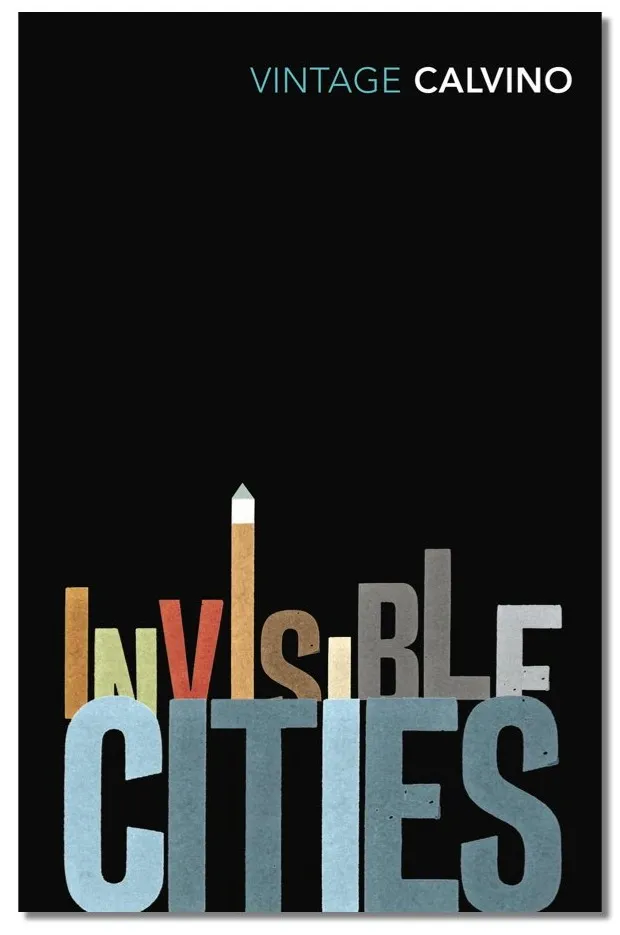
Italo Calvino’s Invisible Cities is an absolute masterpiece and there is no other way to describe it. Originally published in 1972, it is a travelogue to places that don’t exist. The book explores and, I think, pushes the boundaries of imagination through the descriptions of 55 cities by explorer Marco Polo to emperor Kublai Khan.
Focusing on tropes of memory and place, we follow the narrator’s voyages through mesmerizing depictions of various unbelievable places. Each of the cities is somewhat connected to topics such as death, time, culture, and language which make up the human experience.
Reading this book was an incredible experience as I felt transported to these unreachable places with the power of my mind’s eye. I could feel my imagination being pushed and challenged as I was reading. The writing is impeccably immersive, and it made me a little bit sad that I could not actually visit these places.
Invisible Cities is a perfect summer read if you’re looking to travel and can’t because of current COVID-19 restrictions.
Also by Italo Calvino: Italian Folk Tales
3. The Alchemist by Paolo Coelho
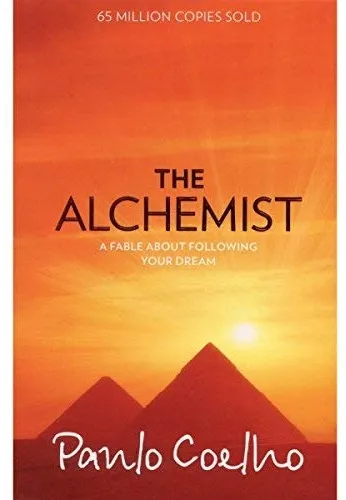
I’m only halfway through this book and I can already see its value as a literary classic of the twentieth century. The Alchemist is a novel by Brazilian author Paolo Coelho, first published in 1988. It has since become a widely translated internationally bestselling novel and I can absolutely see why.
The story follows a young shepherd boy in his journey to the Egyptian pyramids, encouraged by recurring dreams of finding a treasure there. The novel is essentially a metaphor for the readers to decipher and to learn from.
Coelho’s writing is also interesting because of its simplicity and brevity: it doesn’t try to hide any truths from its readers, and it doesn’t divulge into unnecessary, prolonged prose. It gets straight to the point and inside the reader’s heart.
While the main theme of the book is about finding one’s destiny, I believe that the trope of traveling and moving away from your comfort zone is also very significant. Some of the thoughts expressed throughout the book are easy to identify and empathize with: for example, the fear of following one’s dreams because of the risks that sometimes involves.
Overall, the book evokes a certain self-reflectiveness which – according to The New York Times – makes The Alchemist “more self-help than literature.” It is the perfect balance of light and thought-provoking reading, suited to summer’s meditative mood.
Also by Paolo Coelho: The Pilgrimage
4. My Brilliant Friend by Elena Ferrante
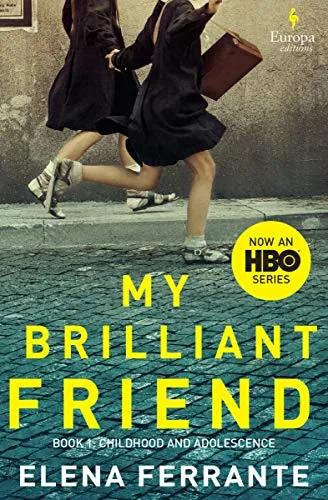
This is absolutely the best book I've read in the past couple of years. Set in 1950s Naples, My Brilliant Friend is the first out of four books that follows the lives of best friends Elena Greco and Lila Cerullo as they grow up and end up leading two different lives despite their similar "brilliant" natures.
I don't know whether it's because of its setting's familiarity (as I am originally from Naples) or because of Ferrante's attractive storytelling, but I had to force myself not to read this book all in one sitting. All of the storylines this series follows are captivating. Not to mention the way that some of the socio-political conditions that surround the characters are explored.
My Brilliant Friend has also been made into a critically-acclaimed HBO series, which I can guarantee is just as immersive as the actual book.
Also by Elena Ferrante: The Lying Life of Adults
5. The Translator by Leila Aboulela
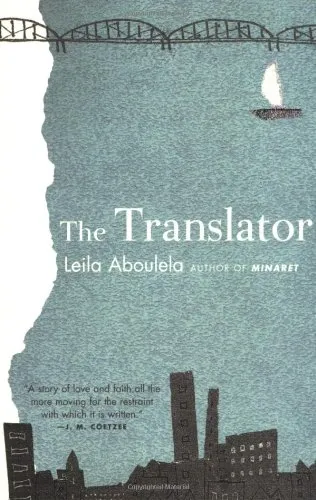
I had to read this book as part of a university course and it was a very pleasant surprise. I'm not sure I would have read it by myself if I had to choose. But I actually found myself really engrossed in the story exactly because of how far it is from my own background and reading preferences.
The plot is based around a recently widowed Muslim woman living in grey and dull Aberdeen, Scotland - such a contrast from her hometown in Sudan. As readers, we see her life slowly taking back color as she falls in love with a Scottish Islamic scholar Rae.
Similar to the contrast between the life she leads in Scotland versus the one she led in Sudan, the relationship between Rae and Sammar (the protagonist) is very conflictual. As we follow Sammar on her journey, she navigates how to stay true to herself and her faith while at the same time giving "faithless" Rae a chance:
An exquisitely crafted meditation on love, both human and divine.
Also by Leila Aboulela: Minaret
6. Desire: Vintage Minis by Haruki Murakami
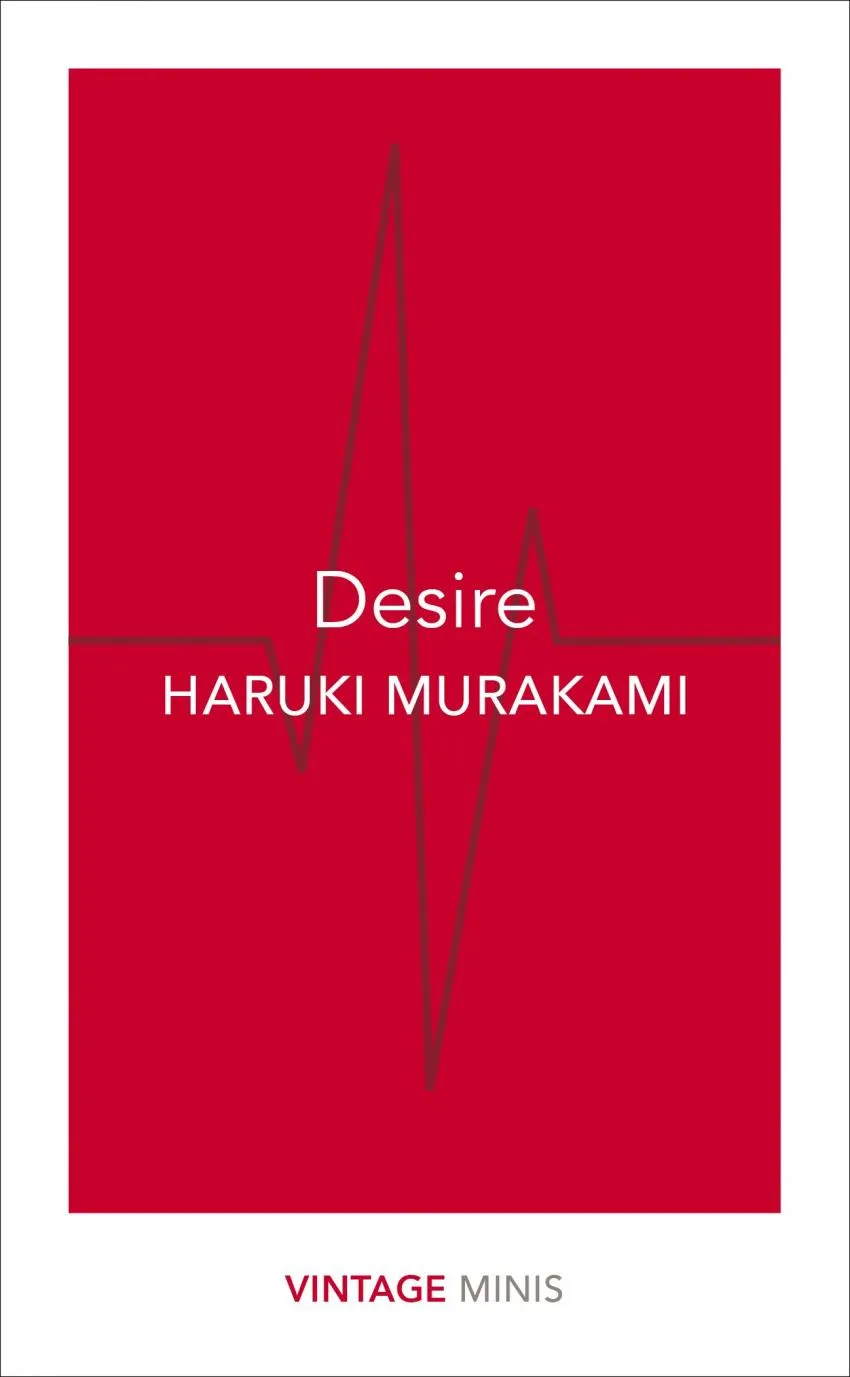
Desire is a series of short stories by Japanese writer Haruki Murakami around the theme of love, sex, and - of course - desire. Murakami's writing is praised and recognized for his own particular take on the genre of magical realism.
The five stories collected in this Vintage Minis edition have been selected from other short stories collections by Murakami. As stated on the book's blurb - these stories,
... unlock the many-tongued language of desire, whether it takes the form of hunger, lust, sudden infatuation or the secret longings of the heart.
I highly recommend this as an alternative classic because of its ability to give you a taster of what Murakami is all about: a delicate enigma. After reading this book, I can't wait to read more of Murakami's work and I'm sure you'll also feel the same.
Also by Haruki Murakami: Norwegian Wood
7. Before the Coffee Gets Cold by Toshikazu Kawaguchi
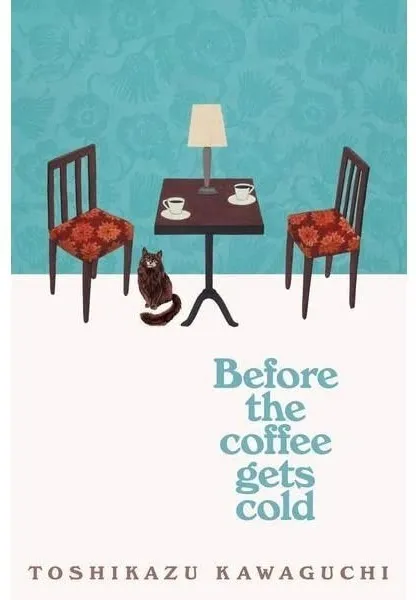
Admittedly, I have yet to read Kawaguchi's Before the Coffee Gets Cold, but lately - whenever I walk into a book shop - it keeps catching my eye. My flatmate, who has read it, also speaks very highly of this book.
The story follows four characters, who visit a coffee shop where time traveling is possible. The book explores the timeless question of: 'What would you change if you could travel back in time?'
However, there are some conditions to follow in order for the visitors to go back and amend their past. Most importantly, they must return to the present before the coffee gets cold...
By the sound of it, this book has the potential to become a (pardon me) timeless classic. It is certainly a very intriguing idea, despite its banality, and this book is definitely on my summer to-read list.
Also by Toshikazu Kawaguchi: Before the Coffee Gets Cold: Tales from the Café
8. A Thousand Splendid Suns by Khaled Hosseini
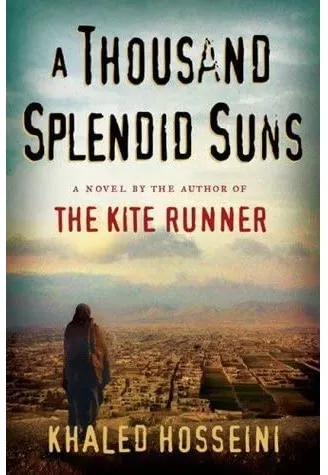
Another book for my summer to-read list. Although I've not read this yet, I already know that it will be heart-wrenching and that I will love it.
A Thousand Splendid Suns follow the story of three generations as they try to live their lives, build families, and find happiness during three decades of Afghan history - from the Soviet invasion to the reign of the Taliban to post-Taliban rebuilding.
In a world where people tend to make assumptions about people and places based on the news, preconceived notions, prejudice, etc., this book needs to be read. - goodreads
Also by Khaled Hosseini: The Kite Runner
9. Cat's Eye by Margaret Atwood
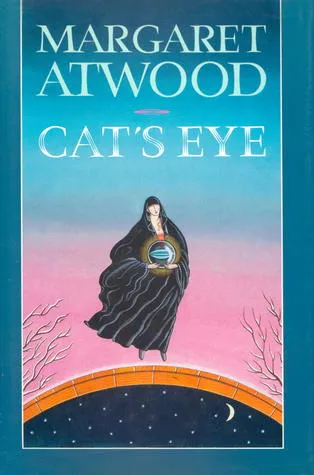
This book is somewhat similar to My Brilliant Friend in the sense that it follows the story of a friendship between two Canadian girls through adulthood and how life can lead you on different paths, despite having the same origins.
However, as readers, we quickly become aware of how toxic the friendship between Elaine Risley and Cordelia is compared to that between Elena and Lila in My Brilliant Friend.
This book is a comment on how the events and people in your childhood deeply shape how you enter and live in the grown-up world. I believe it is a must-read for all ages: Whether you're just entering your teenage years, adulthood, or reflecting back on your life.
Also by Margaret Atwood: Alias Grace
Opinions and Perspectives
The power dynamics in Cat's Eye are so well observed. Really shows how cruel kids can be.
The way love and faith intertwine in The Translator is beautifully portrayed.
Rebecca proves you don't need gore to create real horror. Psychological suspense at its finest.
The women's strength in A Thousand Splendid Suns is incredible. Such powerful characters.
My Brilliant Friend captures that intensity of teenage female friendship perfectly.
Invisible Cities makes me see my own city differently. Changes your perspective.
The Alchemist teaches you to listen to your heart. Sometimes that's all we need to hear.
Before the Coffee Gets Cold is more emotional than I expected. Really about human connections.
Murakami's stories always leave me feeling slightly off-balance, in a good way.
The Translator beautifully portrays the immigrant experience. So much nuance and sensitivity.
A Thousand Splendid Suns shows such resilience in the face of adversity. Really inspiring.
The way Ferrante writes about Naples makes it feel like another character in the story.
Each city in Invisible Cities feels like a different philosophical puzzle. Really makes you think.
The Alchemist's message about personal legends really resonated with me. Sometimes you need to read something at the right time.
Before the Coffee Gets Cold makes you think about what you'd really change if you could go back.
Cat's Eye really nails the complexity of female relationships. Both the good and the toxic.
Murakami's short stories are like perfectly crafted jewels. So much meaning in such small spaces.
The Translator really shows how faith shapes someone's whole worldview. Very thought-provoking.
The gothic elements in Rebecca are perfectly balanced. Not too heavy but definitely atmospheric.
A Thousand Splendid Suns should be required reading. Really opens your eyes to different perspectives.
My Brilliant Friend captures female rivalry so well. That tension between competition and friendship.
Reading Invisible Cities is like experiencing someone else's dreams. So beautifully strange.
The Alchemist reminds me of The Little Prince in how it uses simple story to convey deep truth.
Before the Coffee Gets Cold has such an interesting premise but the execution could be better.
The way Atwood writes about memory in Cat's Eye is so precise. Really captures how the past haunts us.
Murakami's Desire collection is perfect for those new to his work. Great introduction to his style.
The cultural contrasts in The Translator are fascinating. Really shows how love transcends boundaries.
I appreciate how Rebecca doesn't name its protagonist. Makes it easier to put yourself in her shoes.
A Thousand Splendid Suns is heartbreaking but also hopeful. That's what makes it such a powerful read.
The class dynamics in My Brilliant Friend are so well portrayed. Really shows how education can create distance.
Invisible Cities requires slow reading. It's not one to rush through.
The Alchemist seems to affect everyone differently. For me it was life-changing, for others it's too simplistic.
Before the Coffee Gets Cold is more about regret and closure than actual time travel. That's what makes it special.
Cat's Eye made me reflect on my own childhood friendships. Not all of them were as innocent as I remembered.
I love how Murakami's stories stay with you long after reading. They're like dreams you can't quite shake.
The Translator feels especially relevant today with all the discussions about cultural integration.
Rebecca definitely borrows from Jane Eyre but I think it stands on its own as a psychological thriller.
The way Hosseini writes female characters in A Thousand Splendid Suns is remarkably sensitive and authentic.
My Brilliant Friend TV series is fantastic but the books have so much more depth. Ferrante's writing is incredible.
Invisible Cities is more about the power of imagination than actual cities. It's quite profound when you think about it.
The Alchemist works better if you read it as a fable rather than a novel. That's how I approached it.
Just started Before the Coffee Gets Cold. The rules for time travel are interesting but the writing feels a bit stiff.
Cat's Eye really captures the cruelty kids are capable of. Those playground scenes were uncomfortably real.
The descriptions in Rebecca are so vivid. I can perfectly picture Manderley in my mind.
I love how Murakami blends the ordinary with the surreal. His writing style is so uniquely hypnotic.
A Thousand Splendid Suns helped me understand Afghan culture beyond the headlines. Such an important read.
My Brilliant Friend series gets even better with each book. The way the characters evolve is fascinating.
The Translator opened my eyes to a whole different world. Really made me think about faith and cultural differences.
Tried reading Invisible Cities three times and just couldn't get into it. Maybe I need to be in the right headspace.
Rebecca feels dated in some ways but the themes of jealousy and insecurity are timeless.
The Alchemist changed my perspective on following my dreams. Sometimes simple messages are the most powerful.
I found Desire a bit hit or miss. Some stories were brilliant but others felt like typical Murakami being weird for weird's sake.
Cat's Eye perfectly captures how childhood trauma shapes us. That scene with the ravine still haunts me.
The coffee shop time travel concept seems overdone but I heard Before the Coffee Gets Cold puts an interesting spin on it.
Reading My Brilliant Friend made me immediately book a trip to Naples! The sense of place is so vivid.
I actually preferred Jamaica Inn to Rebecca. The smuggling plot was more exciting than the psychological elements for me.
Invisible Cities is unlike anything I've ever read. It's more like poetry than prose really. Perfect for dipping in and out of during summer.
Currently reading The Translator and finding it so refreshing to see such a nuanced portrayal of faith and cultural identity.
I struggled with Rebecca at first but once the mystery picked up I couldn't put it down. That Mrs. Danvers still gives me chills!
The Murakami collection sounds perfect for summer reading. His shorter works are actually my favorites.
Interesting list but I'm surprised The Kite Runner isn't included instead of A Thousand Splendid Suns. I found it more impactful personally.
A Thousand Splendid Suns broke my heart. Such beautiful writing about such difficult subjects. I still think about those characters years later.
Before the Coffee Gets Cold sounds intriguing but I worry it might be gimmicky. Anyone read it and can share thoughts?
Cat's Eye really hit home for me. Those toxic childhood friendship dynamics Atwood describes are so painfully accurate.
I disagree about The Alchemist being preachy. I found it quite profound and the simple writing style actually helped convey the deeper messages better.
Just finished My Brilliant Friend and wow, what a powerful portrayal of female friendship! The way Ferrante captures the complexity of Elena and Lila's relationship is incredible.
The Alchemist felt a bit too preachy for my taste. I know lots of people love it, but the metaphors seemed heavy-handed to me.
Been wanting to read Invisible Cities for ages! The concept sounds fascinating. Has anyone here read it in the original Italian? I'm curious how the translation compares.
I absolutely loved Rebecca! The atmospheric tension and psychological suspense kept me turning pages late into the night. The nameless protagonist's journey really drew me in.
